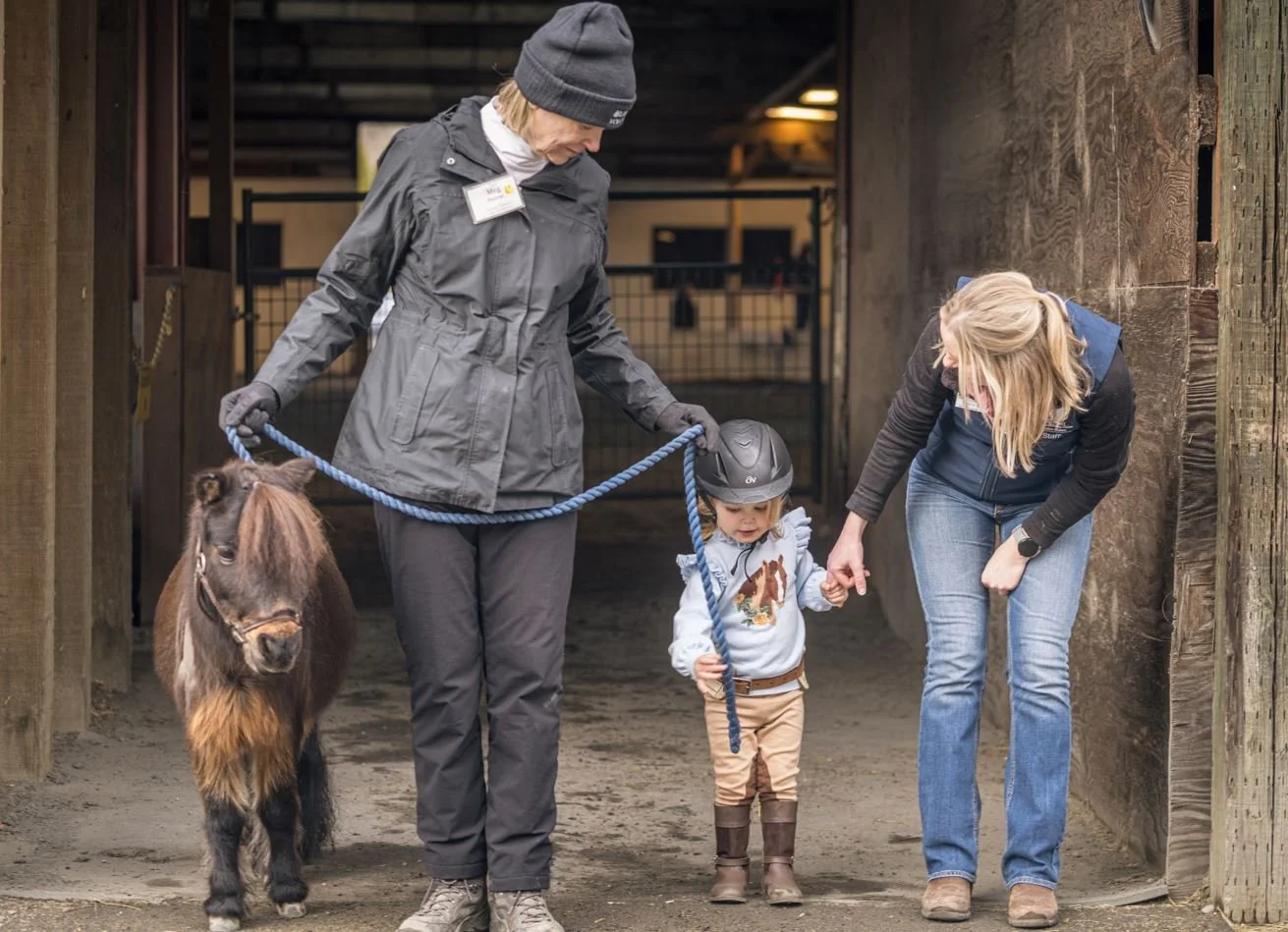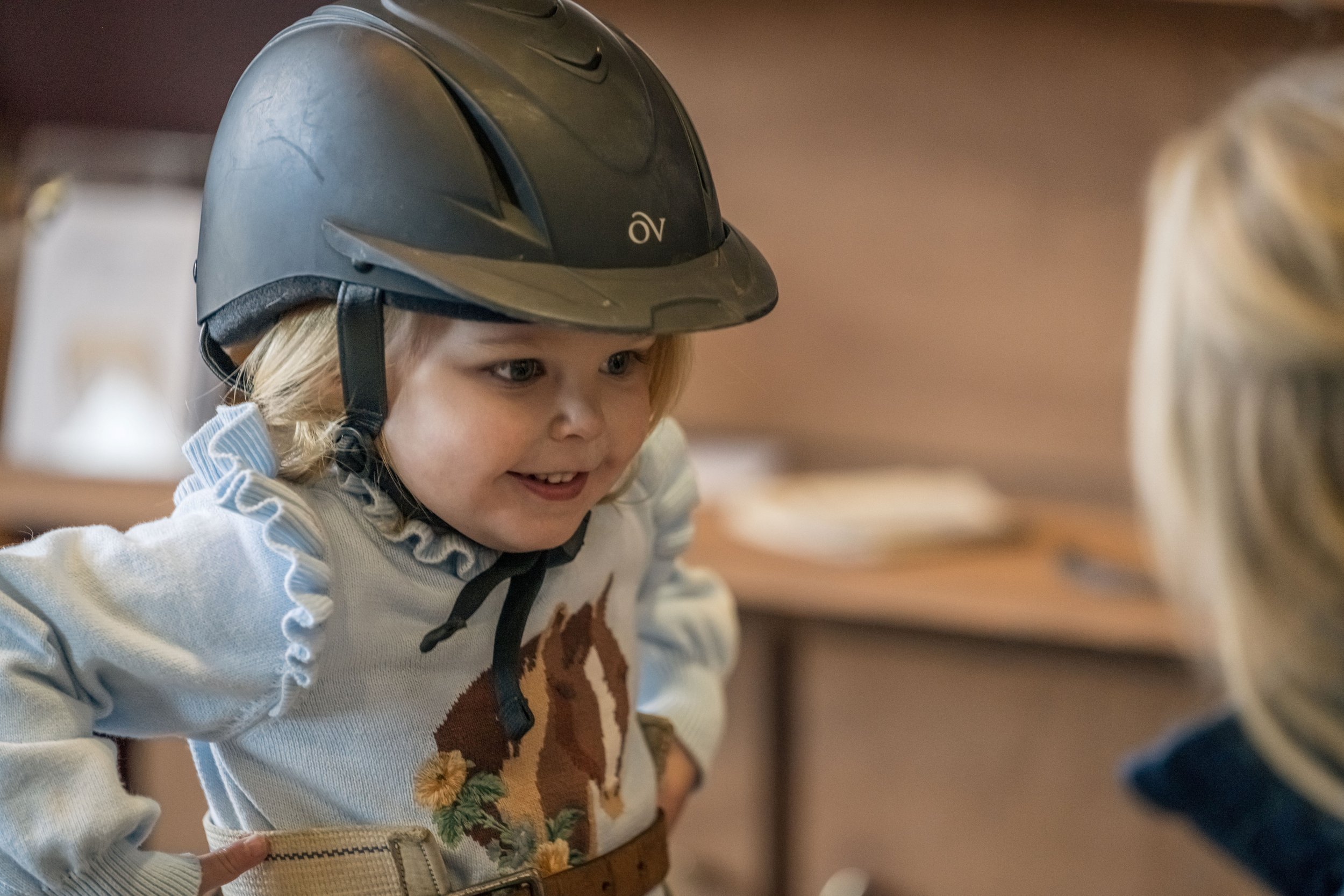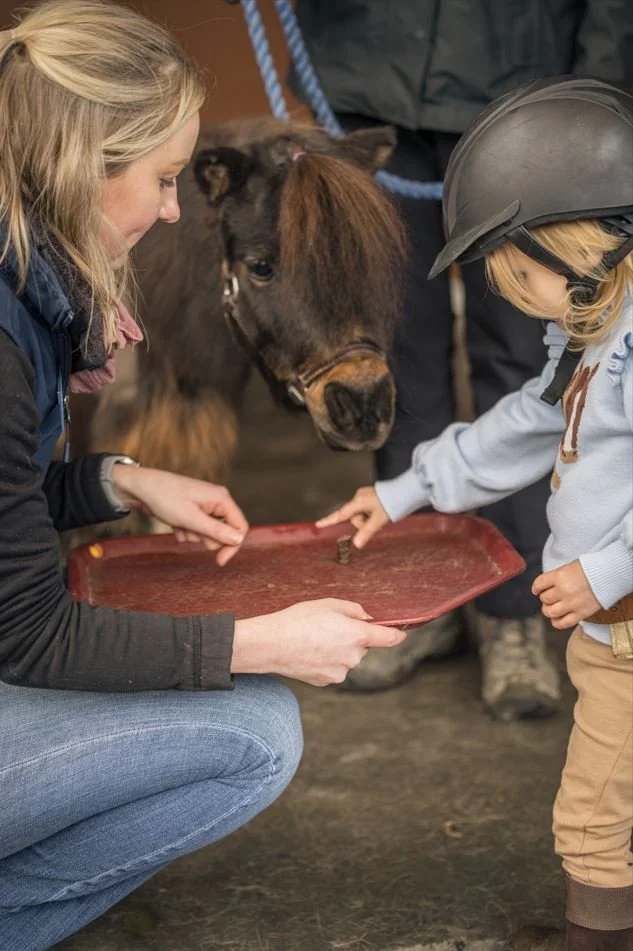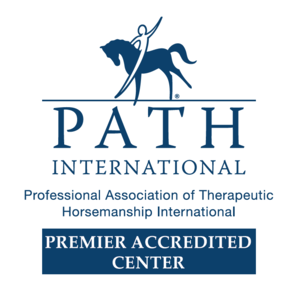A close family member was diagnosed with autism, so Wendy closely monitored her babies. She learned that, if they showed possible signs of autism, early intervention would be critical. Then the typical baby smiles didn’t happen. At 10 months, Wendy and her husband asked doctors for help, and at one year, they attempted their own early intervention.
Our story focuses on one of the babies—Celeste. After a year and a half, Celeste still was not making eye contact and would not turn her head when her name was called. “She was hyper-focused on something else, as if she was in a different world,” said Wendy.
Wendy insisted that both of her kids be tested, and both were diagnosed with autism. Celeste had delays in speech, body language, and understanding. Wendy wanted Celeste to be able to grow her vocabulary and use more words to communicate her thoughts, feelings, and ideas consistently—and be understood. She reached out to Little Bit Therapeutic Riding Center before her children were two years old.
Little Bit’s Speech-Language Pathologist, Devin, began working with Celeste at two years of age. Their weekly time together is focused on three goals: improving speech sounds, expanding vocabulary and length of speech, and developing pretend play. During treatments, Celeste and Devin partner with Little Bit’s mini horse, Pete, and volunteer, Meg. To help Celeste work towards her therapy goals, Devin uses a play-based, child-directed approach involving natural interactions like grooming and leading Pete. In Little Bit’s unique therapy setting, there are limitless opportunities for natural interactions.
At home, Celeste was once “stuck” in using gestures or single syllables like “bah” for bottle or “Pe” for Pete, and she didn’t speak at all with people she did not know. At Little Bit, some of Devin’s treatment tools include picture cards, verbally emphasizing the ending of words and using hand motions or gestures, and the vaulting barrel, where Celeste can sit at Devin’s eye level. Throughout their treatment session, Devin continuously models speaking, taking Celeste’s sounds and repeating them back as a full word or phrase. She verbally prompts Celeste to take part in procedures, like buckling and unbuckling Pete’s blanket.
Pretend play is an important part of any child’s development. Initially, Celeste didn’t engage in any pretend play; she would roll a ball or watch someone else play, but she kept to herself. At Little Bit, she is constantly encouraged to pretend play, such as riding a green foam pool noodle like a horse. Devin shared, “Celeste is now naturally engaging with objects around the barn, like brushes and hoof picks, in Celeste’s favorite color pink, and imitating those same actions and sequences outside the barn. All of this pretend play supports Celeste’s social skills, critical thinking, emotional control, and relationship building.”
Wendy shared, “Now that Celeste has joined Little Bit, she can tell you all about Pete and Devin, but she has yet to say, ‘I love you.’ She calls our Little Bit day, ‘neigh neigh’ day. Now, Celeste refers to ALL horses as ‘Pete’ instead of ‘neigh neigh’.”
When asked how Celeste might be different today without Little Bit’s services, Wendy shared, “I am so thankful for the eye contact. She’s more social. She is playful with other little girls. She likes grooming herself and other people now. These are the ways she expresses her love. She can also identify the feelings of another child. Those are huge milestones.”
Wendy continued, “Since being at Little Bit, Celeste will take toy horses and put a little person on top of the horses and try to get them to ride. It’s a big deal—this is the start of pretend play.”
Wendy believes that the “burst” in language development that she and Celeste’s other therapists are noticing is due in part to her treatments at Little Bit. “Her language growth has been extreme. Hire more speech therapists—this is amazing!” Wendy continued, “At Little Bit, there is this performance and reward scenario; you’re with the horse and your words create magic. If I say something to the horse, the horse does something because I spoke.”
“My husband and I knew that Little Bit was so important. Little Bit was something I was going to fight for, for my kids. If it wasn’t for people making donations to keep our cost low, I wouldn’t be able to help my child. I have two autistic children. They need it in their early development. We have to be there right now when they are little. I wish there was more funding. I wish more kids could get into it. I wish we could come more often.”
Thank you, Wendy and Celeste, for sharing your Little Bit story with all of us! Little Bit Therapeutic Riding Center shares your wishes.
♥ Thank you to Wendy and Celeste, for sharing their story with all of us.
Thank you to Celeste’s Little Bit Team.
Thank you to Steve Birds Photography.
Written by Sharon Soldenwagner













